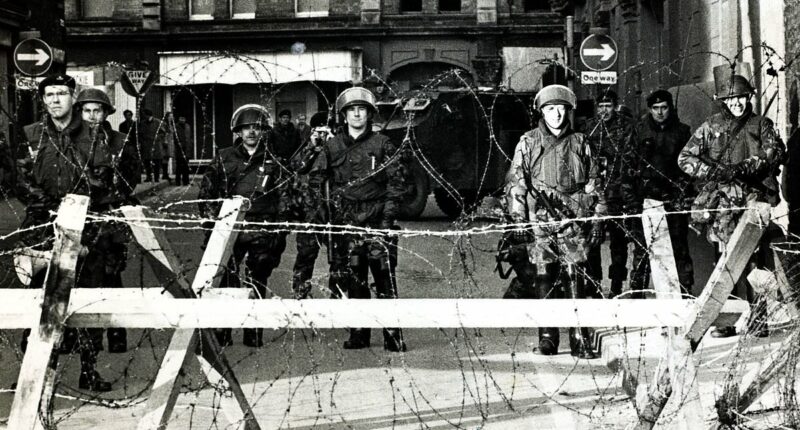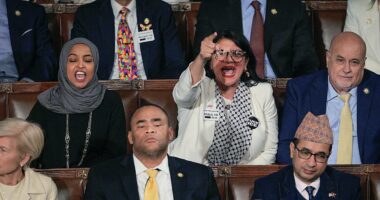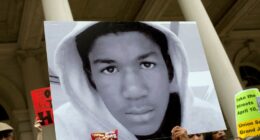Share this @internewscast.com
Veterans expressed outrage on Thursday night, calling for the Labour Party to cease what they describe as a “witch hunt” following the acquittal of a former paratrooper linked to the Bloody Sunday shootings.
Criticism emerged from both former military personnel and government officials regarding the case against the veteran known only as Soldier F, who is in his seventies. Despite the acquittal, they cautioned that numerous other veterans, including many from the SAS, might still face legal action.
The verdict has incited anger among republicans, who are encouraged by the government’s move to repeal the Legacy Act—legislation that offered some legal protections to veterans. They are now advocating for further investigations into other historical incidents from the Northern Ireland conflict, known as the Troubles.
Soldier F stood trial for two counts of murder and five counts of attempted murder during a civil rights march in Londonderry on January 30, 1972. He was cleared of all charges after a judge criticized the prosecution’s evidence.
At Belfast Crown Court, Judge Patrick Lynch KC stated that the evidence presented was significantly insufficient for conviction and condemned the prosecution’s reliance on testimonies from two former comrades of Soldier F, whom he deemed “serially untruthful.”
Reacting to the acquittal, former SAS Regimental Sergeant Major George Simm remarked, “This concludes the legal farce surrounding this specific case. There was never any new or compelling reason to reopen the proceedings.”
‘Why was Soldier F put through this process for 53 years? More of these cases are coming because Labour scrapped the last Conservative government’s Legacy Act.
‘Soldiers are being chased to their graves in what are nothing more than political trials. It has to stop. How on earth can serving soldiers have any confidence in their own government? Troops are watching veterans being hounded and harassed deep into old age.’

Furious veterans demanded on Thursday night that Labour halts the witch hunts against them after a paratrooper, known only as Soldier F and now in his seventies, was cleared of Bloody Sunday shootings. Pictured: British troops on Bloody Sunday

Soldier F, who had been charged with two murders and five attempted murders at a civil rights march in Londonderry on January 30, 1972, was acquitted on all counts after a judge slammed the prosecution’s evidence. Pictured: Bloody Sunday victims’ relatives head to court before the verdict

Prosecutors were unable to say who fired the fatal shots that killed James Wray (pictured), 22, as he ran from British troops

William McKinney (pictured), 26, was also alleged to have been shot dead by Soldier F – but prosecutors were unable to say who fired the shot that killed him
Suella Braverman, former Conservative home secretary, said: ‘It is a disgrace that this came to trial. The witch hunt of our brave veterans needs to stop.’
The 2023 Legacy Act was introduced by Tory former veterans minister Johnny Mercer, requiring fresh evidence to resurrect cases from the Troubles, which lasted from the late Sixties until the Good Friday Agreement (GFA) in 1998.
Historical inquests and prosecutions relying on the retrospective application of the European Convention on Human Rights were shut down, and it created the Independent Commission for Reconciliation and Information Recovery.
For the first time, veterans were provided with conditional immunity, mirroring pledges included in ‘comfort letters’ sent to ex-terrorists as part of the GFA.
Labour’s intention to repeal aspects of the Legacy Act was included in its 2024 election manifesto.
It has since announced plans to remove clauses in the Act that shut down historical cases and ended the conditional immunity scheme.
Last month, Labour unveiled what it described as six ‘protections’ for ex-soldiers, but none prevent elderly ex-troops being dragged through the courts.
The Soldier F case hinged on testimonies from Soldier G, now dead, and Soldier H, who was unwilling to testify.
Prosecutors were unable to say who fired the fatal shots that killed James Wray, 22, and William McKinney, 26, as they ran from British troops.
Critics said their hearsay evidence should never have reached court.
While the Soldier F case was the last slated for legal proceedings, fresh inquests into incidents involving the SAS could put more troops through the same ordeal.
Critics fear Sinn Fein ministers and supporters will push legal officials to put more troops on trial, despite a lack of evidence.
Northern Ireland First Minister Michelle O’Neill said the verdict was ‘the continued denial of justice for Bloody Sunday families’.
Some of the SAS’s biggest operational successes against the IRA are being re-examined.

The 2023 Legacy Act was introduced by Tory former veterans minister Johnny Mercer, requiring fresh evidence to resurrect cases from the Troubles. Pictured: A British soldier scuffles with a Catholic protester during Bloody Sunday

Historical inquests and prosecutions relying on the retrospective application of the European Convention on Human Rights were shut down. Pictured: Relatives of those killed on Bloody Sunday marched to court ahead of the judge’s verdict

Labour’s intention to repeal aspects of the Legacy Act was included in its 2024 election manifesto. Pictured: Mickey McKinney, brother of Bloody Sunday victim William McKinney, speaking outside court
The Daily Mail has campaigned for protections to Stop The SAS Betrayal, only for Sir Keir Starmer’s administration to abandon veterans.
Sir David Davis, a former SAS reservist and Tory shadow home secretary, said the lack of new evidence in the Soldier F case ‘should ring alarm bells far beyond this courtroom’, adding that it brings ‘into sharp focus the reliability and admissibility of evidence in other cases. Many veterans in declining health face being dragged through the courts on the back of flimsy evidence’.
Judge Lynch, who heard the five-week case without a jury, said the soldiers did not act in self-defence when they fired their guns.
But he said the main issue lay with a lack of evidence that could be tested in court, adding: ‘A 53-year-old statement can’t be cross-examined. I can’t assess the demeanour of a sheet of A4 paper.’
He said the Parachute Regiment had been tarred by those ‘shooting in the back unarmed civilians running away’, adding that ‘those responsible should hang their heads in shame’.
No 10 said the verdict was ‘an example of the complex legacy of the Troubles, which affected so many families across the UK’.
But Tory defence spokesman James Cartlidge said that by repealing the Legacy Act, Labour risked ‘exposing many elderly veterans to legal investigation’.
Northern Ireland’s Veterans Commissioner David Johnstone said the Bloody Sunday families ‘continue to experience pain’, adding ‘we should not forget that’.
Paul Young, of the Northern Ireland Veterans Movement, said soldiers who served in Northern Ireland with ‘honour and courage’ had been ‘hounded’.

















